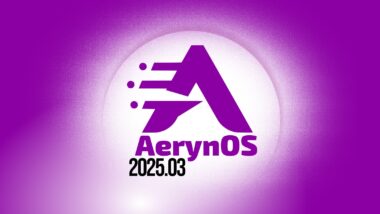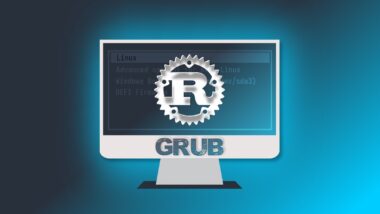AerynOS (former Serpent OS) Makes Its Debut with 2025.03


 If you’re an avid user of GNOME Shell extensions then a) you’re in good company, and b) you’ll likely be familiar with Matt Jakeman’s terrific Extension Manager app, as it makes finding, installing, managing, and syncing GNOME extensions terrifically easy. Well, this week it got a small-ish update I was going to cover in my Linux Release Roundup at the end of the month but with GNOME 48 out—cue the “does my favourite extension still work” panic—it feels fitting give it a shinier spotlight. Especially Extension Manager‘s Flatpak build now depends on the GNOME 48 runtime (so if you’re installing […]
If you’re an avid user of GNOME Shell extensions then a) you’re in good company, and b) you’ll likely be familiar with Matt Jakeman’s terrific Extension Manager app, as it makes finding, installing, managing, and syncing GNOME extensions terrifically easy. Well, this week it got a small-ish update I was going to cover in my Linux Release Roundup at the end of the month but with GNOME 48 out—cue the “does my favourite extension still work” panic—it feels fitting give it a shinier spotlight. Especially Extension Manager‘s Flatpak build now depends on the GNOME 48 runtime (so if you’re installing […]
You're reading Extension Manager Update Brings UI Buffs, Support for GNOME 48, a blog post from OMG! Ubuntu. Do not reproduce elsewhere without permission.


For decades, Linux distributions have relied on native packaging formats like DEB and RPM to distribute software. These formats are deeply integrated into the Linux ecosystem, tied closely to the distribution's package manager and system architecture. But over the last few years, two newer technologies—Flatpak and Snap—have emerged, promising a universal packaging model that could revolutionize Linux app distribution.
But are Flatpak and Snap destined to replace native Linux apps entirely? Or are they better seen as complementary solutions addressing long-standing pain points? In this article, we'll explore the origins, benefits, criticisms, adoption trends, and the future of these packaging formats in the Linux world.
Traditional Linux software is packaged using system-specific formats. For example:
.deb for Debian-based systems like Ubuntu and Linux Mint
.rpm for Red Hat-based systems like Fedora and CentOS
These packages are managed by package managers like apt, dnf, or pacman, depending on the distro. They're tightly integrated with the underlying operating system, often relying on a complex set of shared libraries and system-specific dependencies.
Pros of Native Packaging:
Smaller package sizes due to shared libraries
High performance and tight integration
Established infrastructure and tooling
Cons of Native Packaging:
Dependency hell: broken packages due to missing or incompatible libraries
Difficulty in distributing the same app across multiple distros
Developers must package and test separately for each distro
Both Flatpak and Snap aim to solve the distribution problem by allowing developers to package applications once and run them on any major Linux distribution.
FlatpakDeveloped by the GNOME Foundation
Focus on sandboxing and user privacy
Applications are installed in user space (no root needed)
Uses Flathub as the main app repository
Flatpak applications include their own runtime, ensuring that they work consistently across different systems regardless of the host OS's libraries.
SnapDeveloped and maintained by Canonical, the makers of Ubuntu
Focus on universal packaging and transactional updates

 Linux Kernel 6.14 has arrived, bringing a clutch of changes to make your computer run more efficiently and more securely than before. Interestingly, Linux 6.14 is one the smallest kernel updates in terms of commits (not lines of code) for some time. It is also the kernel version that will be included in Ubuntu 25.04, released next month. Announcing the promotion to stable on the Linux Kernel Mailing List (LKML) Linus Torvalds notes that the release arrives one day later than expected because of …Well, I’ll let him explain: “So it’s early Monday morning (well – early for me, I’m […]
Linux Kernel 6.14 has arrived, bringing a clutch of changes to make your computer run more efficiently and more securely than before. Interestingly, Linux 6.14 is one the smallest kernel updates in terms of commits (not lines of code) for some time. It is also the kernel version that will be included in Ubuntu 25.04, released next month. Announcing the promotion to stable on the Linux Kernel Mailing List (LKML) Linus Torvalds notes that the release arrives one day later than expected because of …Well, I’ll let him explain: “So it’s early Monday morning (well – early for me, I’m […]
You're reading Linux Kernel 6.14 Released, Delivers Big Boosts to Linux Gaming, a blog post from OMG! Ubuntu. Do not reproduce elsewhere without permission.